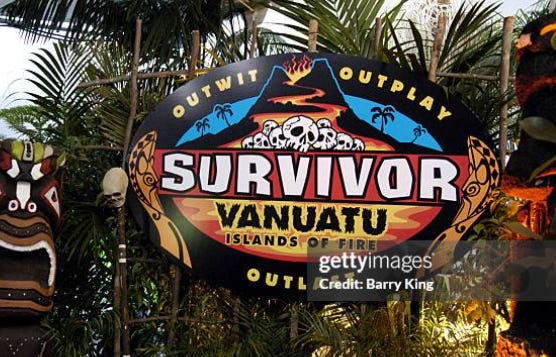The Death of Reality Television is Nigh Upon Us and I Could Not Be Happier
What started out as an entertaining spectacle of the great human experiment has turned into a crass money-making scam that provides instant fame but no foundation for the thrusted stars to stand on
The death of Reality Television is nigh upon us, and I could not be happier about that.
Thrusting everyday unprepared people into the limelight without the support of the proverbial 10,000 hours of skill development was one of the causes of the franchise’s imminent collapse. This is a metaphor for foundationless stardom. Fake life imitating fake art; good riddance.
The supposed natural performance of unscripted life, this entertainment genre shot to the top of television ratings drawing massive viewership. Now, recent viewing figures suggest that the honeymoon is over. A star was born and now it is reentering the atmosphere and burning up with the dying of the light. Good night, Reality TV you sucked the life out of the performance and the money out of art.
From April through June, Reality TV production in Los Angeles plummeted by 57 percent compared with the same period last year. Fifty percent compared with the five-year average, according to FilmLA, a nonprofit organization that tracks on-location shoot days and filming permits in the region.
The Truman Show
The modern-day inspiration for Reality TV can be credited to the movie The Truman Show starring Jim Carrey. The Truman Show was released in 1998 and is considered a psychological comedy-drama film. Written and co-produced by Andrew Niccol, and directed by Peter Weir, the film depicts the story of Truman Burbank (played by Carrey), a man who is unaware that he is living his entire life to a live television audience of millions of adoring fans. It was a great movie concept and to some degree, a new story under the sun.
The psychodramatic illusion cast upon the audience included family and friends who were paid actors. It was a perfect life setting, better than Leave It to Beaver. It was too perfect, and eventually, Burbank caught on and free will was exercised. However, we have no idea how Burbank did out in the harshness of the real world. Not as well as Barbie did, I am sure.
With The Truman Show's success, suddenly, the business of television (read: executives), all at once pounced on the concept. But where they failed is in the lack of art and the big fat lie of the reality aspect. Instead of writing a script and filming a story, the industry flooded the market with so-called Reality TV shows. But it was an altered reality.
Networks played with the game by urging outcomes, scripting moments, product placement and manipulating stories to work for a preferred premise. It became a gauche and tacky subgenre.
Survivor, one of the first big Reality TV shows and one of the most successful was cancelled twice by two different networks in 2022 and then in 2023, who watched as the audience lost interest. Too much of a good thing? Total apathy cascaded over the show and melted it.
Referring to Music, Plays or Cinema as “Content” is a Red Flag
Follow the money. Using the word “content” to describe performance or art is executive-speak to wrap advertising and promotion around. Make no bones about it, if an executive could urge an elephant to rape a weasel on camera, the event would be sold to the highest bidder for product placement and advertising.
Neilsen Media Research found that Reality TV shows carried — are you ready for this — hundreds of product placements per season.
American Idol presented 577 products in thirty-nine episodes, The Biggest Loser, 533 in 34 episodes. The Celebrity Apprentice, 391 in 12 episodes and Dancing with the Stars, 390 in 29 episodes
All the other Reality TV shows did the same thing. It was all about product placement for money. The audience was being coopted for brand exposure. The relationship was transactional.
Unearned Celebrity
Sudden vaunted celebrity is the most insatiable lure of the desperate. The shows spawned music stars and general celebrities. Some cast members were able to parlay fame into merchandising careers. They became famous for being famous and that is it. Nothing more. Andy Warhol’s 15 minutes of fame hypothesis came true. But it is not the sheer time (only just 15 minutes) he was referencing, but that is all that they are worth or earned. Warhol was ahead of his time.
Schadenfreude is the rapture of the spectacle of humiliation. Failing in real-time has its rewards if one suffers from sociopathic or anti-social disorder. They are vainglorious basterds.
The Reality is False
Cheryl Rhoden, assistant executive director of the Writers Guild of America (WGA), offered a tempered response to Reality TV. "To say that reality TV is unscripted is not true. Typically, the writing is like the writing employed by the documentary or game show. The amount of writing varies with the construction of the story arc. But just to create the story or situation involves writing."
New York City television writer Charles Rubin, who has written for "Seinfeld" and "In Living Color," among many other programs, is far less circumspect in his critique of reality TV. Indeed, he says, "They're all fake and absolutely scripted.”
Somewhere in between these two perspectives, we will find reality. It just will not be the reality you expected. The genre appears to be dying and that is a good thing.
A major influence of the condition of Reality TV is the fakery of information from various sources. There are rumour-social media accounts such as Reality von Tease. Also, blind celebrity gossip accounts like DeuxMoi. These accounts eliminate elements from the so-called reality aspect of these shows create drama, rumours, and scandals, and influence others through true and fake teasers.
Reality TV could be rephrased as Devoid of Life Television. The biggest loser is the audience.
Next time you choose to click on a Reality TV show on your screen’s menu, hit yourself over the head with the remote control — and get a life.






